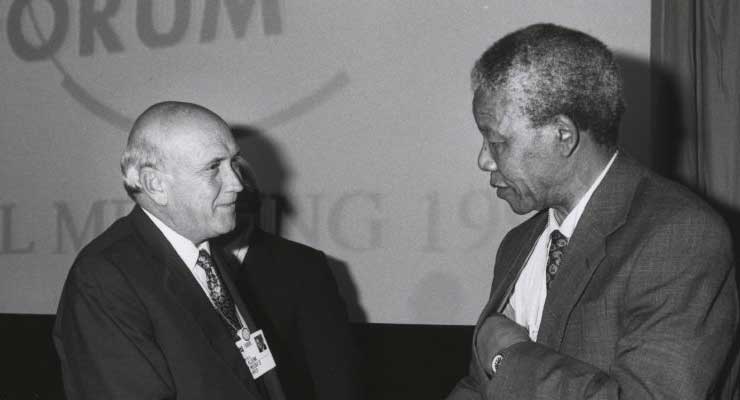
A researcher sees deeper trends behind the end of apartheid and the transition to democracy in South Africa than can be explained by attributing everything to the decisions of leaders like Nelson Mandela and Frederik Willem de Klerk. Tel Aviv University’s Mottie Tamarkin spoke during a conference at Syracuse University titled “PARCC Conversations in Conflict Studies Series.Transforming Intractable Conflicts: Their Restructuring and Reframing Conference”.
Professor Mordechai (Mottie) Tamarkin holds a PhD from the School of Asian and African Studies at the University of London (1974). He is now Professor Emeritus at the Department of Modern Middle Eastern and African History and a Senior Research Fellow Emeritus at the Moshe Dayan Center for Middle Eastern and African Studies at Tel Aviv University. Mottie, as he likes to be called, is the author of several books including Cecil Rhodes and the Cape Afrikaners: The Imperial Colossus and the Colonial Parish Pump (1996), The Making of Zimbabwe: Recolonization in Regional and International Politics (1990), as well as numerous articles on Kenya, Zimbabwe, South Africa, and ethnicity and nationalism in Africa.
Here is the abstract from his talk:
The conventional wisdom in accounting for the smooth transition from apartheid to New South Africa allocates Mandela and De Klerk critical roles. This interpretation has acquired much credibility in light of the subsequent winning of the Nobel Prize by both. It certainly renders a complex historical process easy to comprehend. The paper presented at this conference casts serious doubt about the credibility and veracity of such interpretation. It will rather explore a richer and complex field which contains the conflict’s essence, structure and dynamic and long and complex historical processes.
Exploiting the historical perspective, we have now I will try to answer a critical question which needs to be asked about conflict resolution: Was the conflict resolution a success? I am not at all sure. This raises and important question in assessing such resolution: To what extent we can expect conflict resolution to satisfactorily address expected post-conflict conflicts? My answer would be yes. And with regard to South Africa I am not at all sure that this is the case.
The video is about 20 minutes. Take a look:
Leave a Reply